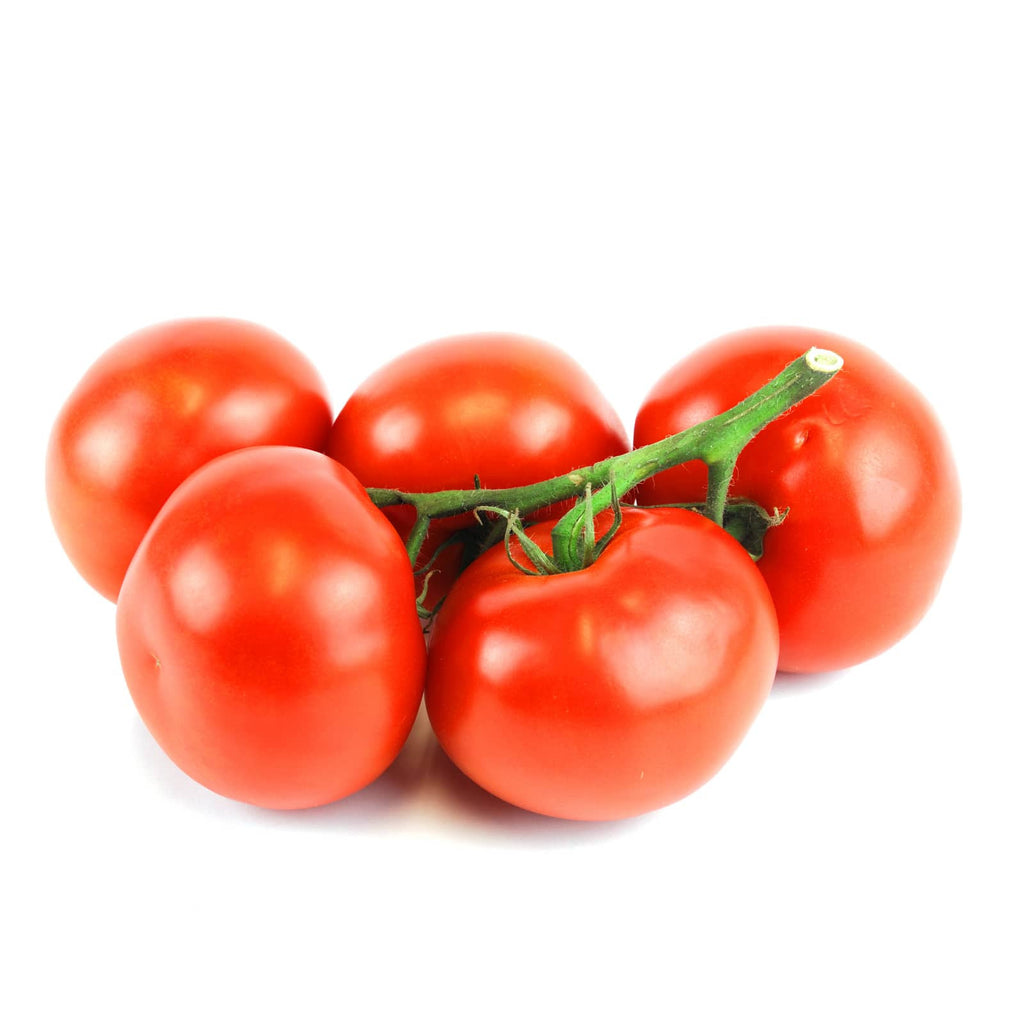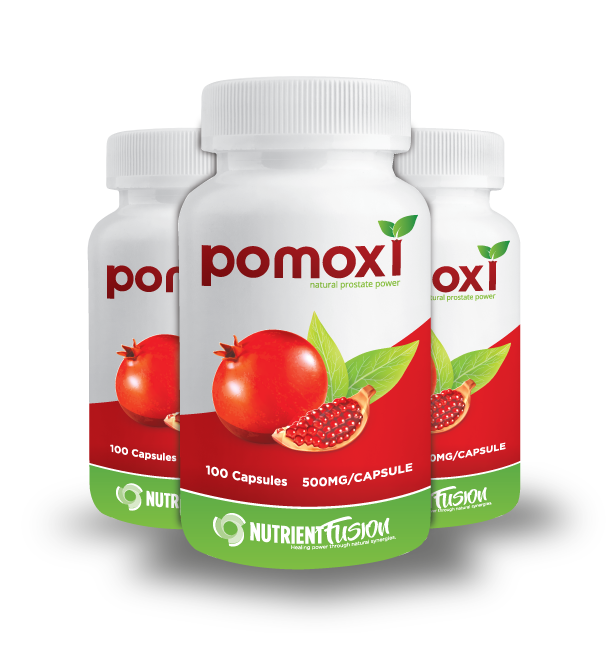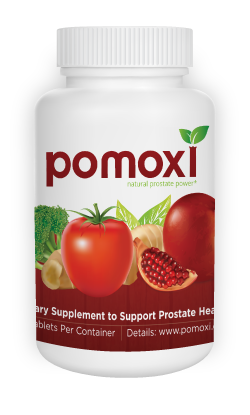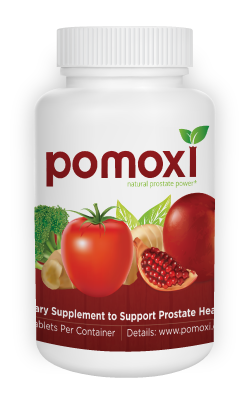Lycopene
A carotene found in a wide variety of plant foods known for its immune system support.

Subscribe and Save 15%
BUY NOW
The Science of Lycopene
Pomoxi contains Lycopene, a key carotene that is stronger than other carotenes in quenching reactive oxygen species associated with aging and degenerative conditions. Lycopene neutralizes singlet oxygen 2.6 times more potently than beta-carotene and is ten times more powerful than vitamin E. (1)
Lycopene’s antioxidant activity is important because it accounts for its prostate health-promoting properties. Lycopene is fat-soluble and is absorbed into prostate cell membranes, where it protects them from free radical damage. (2)
In vitro cell and animal studies have revealed several mechanisms of action of lycopene in the prostate that may play a role in prostate health. (2)
Dietary intake of lycopene increases plasma levels of lycopene and protects against LDL (bad)-Cholesterol oxidation. (3) Lycopene supplementation also increases its content in prostate tissue. (4) The plasma half-life of lycopene is approximately 2 weeks (4).
in a study using tomato-based juice as lycopene source, 80% of the subjects absorbed only 6 mg of lycopene, even when given doses of up to 120 mg of lycopene. (5) This is the reason that Pomoxi contains 6.6 mg of lycopene – more of it would not be absorbed.
In clinical studies, a prostate-specific antigen (PSA) lowering effect of lycopene has been observed both in men with or without an enlarged prostate (Benign Prostatic Hypertrophy, BPH). (6) A decrease in PSA during lycopene supplementation may be due its anti-inflammatory effects seen in laboratory studies. (7)
What is Lycopene?
A red pigment, lycopene is a carotene found in a wide variety of plant foods – most notably, tomatoes. Chemically, this compound is similar to vitamin A, and it is found in vegetables or fruits that contain that vitamin as well, such as carrots (after which carotenes are named).
While the red-colored phytonutrient doesn’t provide any vitamin A benefit like other carotenes do, lycopene nevertheless demonstrates a variety of other very important health benefits. Today, studies point mostly to its potential for cardio-vascular support and prostate health.
More research to solidify its exact impacts on prostate health would be helpful, but the research we do have shows lycopene's immuno-stimulating and antioxidant properties.
What Foods Contain Lycopene?
Since lycopene is a red-colored carotene, you will most likely find it in red fruits and vegetables. Lycopene is most famously found in red tomatoes and tomato products (such as tomato sauce or ketchup), named after the scientific name for the summer vegetable (Solanum lycopersicum).
Strangely enough, not all red veggies and fruits contain the phytonutrient, and you can also find the compound even in non-red veggies or other produce.
Lycopene-containing foods:
- Tomatoes
- Asparagus
- Carrots (redder varieties)
- Grapefruit
- Guava
- Papaya
- Parsley
- Persimmons
- Sweet peppers (red)
- Red cabbage
- Rose hips
- Watermelon
Unfortunately, some very common red fruits – such as strawberries, cherries, raspberries, and apples – don’t appear to have any significant amounts of lycopene, and therefore can’t be considered viable sources for its health benefits.
Food and Supplement Intake
A Western diet high in lycopene-rich foods, especially tomatoes, has some ability to support prostate health.
While studies show that the dietary intake of tomato products, even pasta sauces, can have prostate benefits, the regular incorporation of tomatoes into the diet can be a struggle for many Americans – particularly those who are sensitive to acidic foods, occasional heartburn, or other sensitive digestion issues.
Further, for lycopene in tomatoes to have the most noticeable effect on your body, the tomato must be fresh, fully ripened, cooked, and consumed with oils and fats.
For that reason, a supplement of lycopene sourced from non-nightshade foods may provide a better fit for those who prefer to avoid tomato products, or who have challenges incorporating the produce into their diet.
For those who have no problem with a tomato-rich diet, a supplement can still have an even greater benefit for the prostate.
Lycopene’s Benefits to Prostate Health
Current research has opened up a lot of doors to exploring this carotenoid’s potential, especially for prostate health.
Lycopene demonstrates activity that is:
- Antioxidant
- Immuno-modulator
Many different studies on lycopene patch together its overall potential for a prostate supporting effect including its noticeable ability to prevent cell damage in the body, modulate healthy immune responses, and to also support cellular health.
Using Lycopene
Clinical trials show that taking just 15 to 30 mg of lycopene per day can successfully support prostate health. Upping the dose only a bit more to 45 mg also shows to have great supportive effects.
Further, a lycopene supplement shows little to no health risk, though some side effects may include digestive disturbances and allergic reactions.
Because of these potential side effects, you should talk to your doctor about taking Pomoxi, an all-natural supplement that contains lycopene. Along with other safe, well-researched ingredients – such as green tea, ginger, and apigenin – this non-toxic supplement holds promise to support your prostate health.
References
1. DiMascio, P, Kaiser, S, Sies, Helmut. Lycopene as the most efficient biological carotenoid singlet oxygen quencher. Arch Biochem Biophys. Nov 1,1989: 274: (2) Issue 2, 532-538.
2. Stacewicz-Sapuntzakis M, Bowen PE (2005) Role of lycopene and tomato products in prostate health. Biochim Biophys Acta 1740: 202-205.
3. Gajendragadkar PR (2014) Effects of oral lycopene supplementation on vascular function in patients with cardiovascular disease and healthy volunteers: a randomised controlled trial. PLoS One 9: e99070.
4. Diwadkar-Navsariwala V, Novotny JA, Gustin DM, Sosman JA, Rodvold KA, et al. (2003) A physiological pharmacokinetic model describing the disposition of lycopene in healthy men. J Lipid Res 44: 1927-1939.
5. Diwadkar-Navsariwala V, Novotny JA, Gustin DM, Sosman JA, Rodvold KA, et al. (2003) A physiological pharmacokinetic model describing the disposition of lycopene in healthy men. J Lipid Res 44: 1927-1939.
6. Zhang X, Yang Y, Wang Q. Lycopene can reduce prostate-specific antigen velocity in phase II clinical study in Chinese population. Chin Med J (Engl). 2014;127(11):2143-6.
7. Barber NJ (2006) Lycopene inhibits DNA synthesis in primary prostate epithelial cells in vitro and its administration is associated with a reduced prostate specific antigen velocity in a phase II clinical study. Prostate Cancer Prostatic Dis 9: 407-413.


